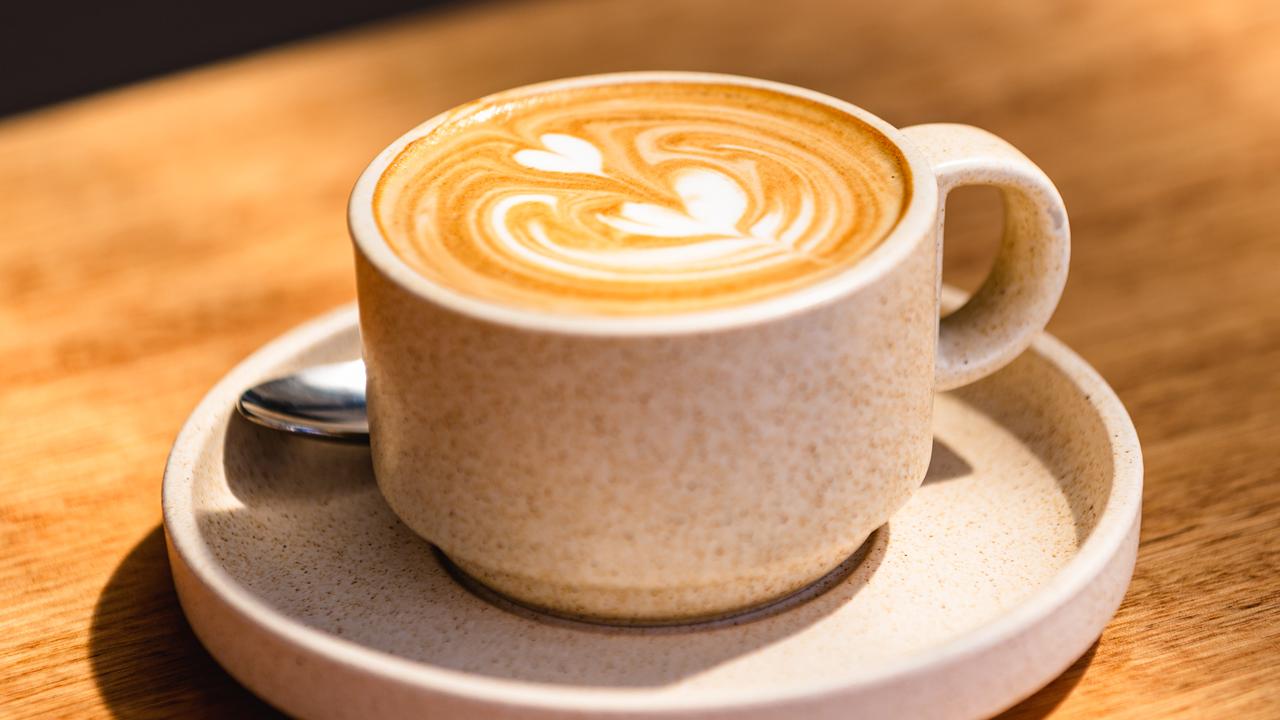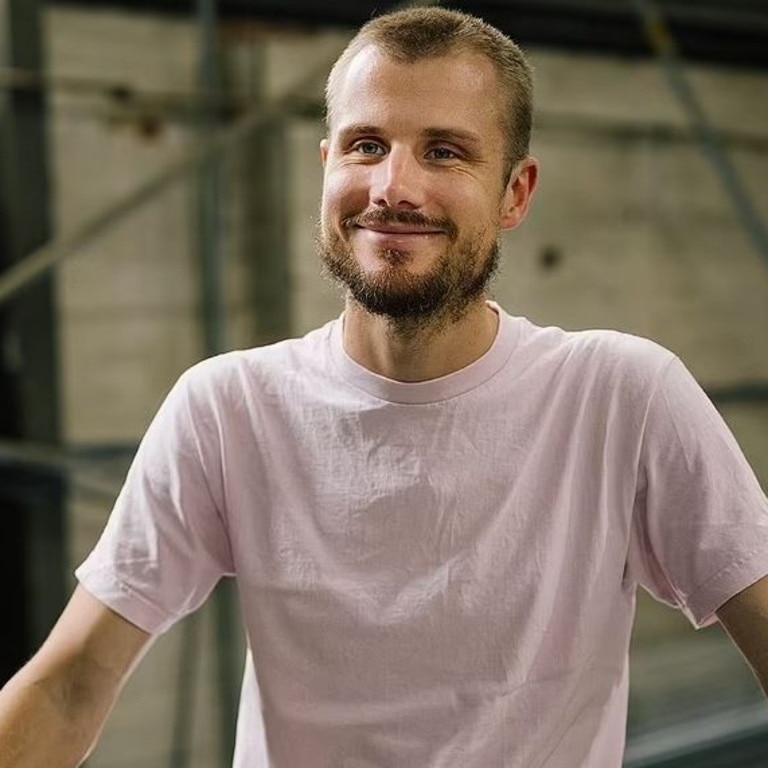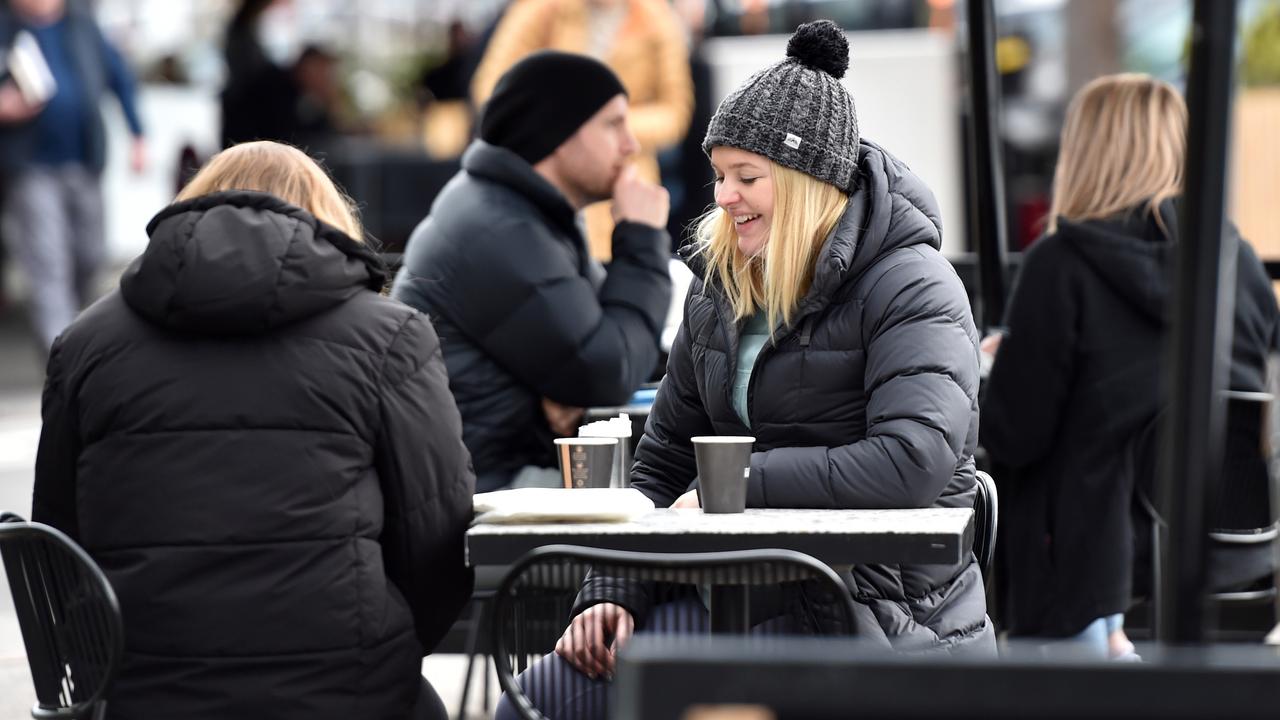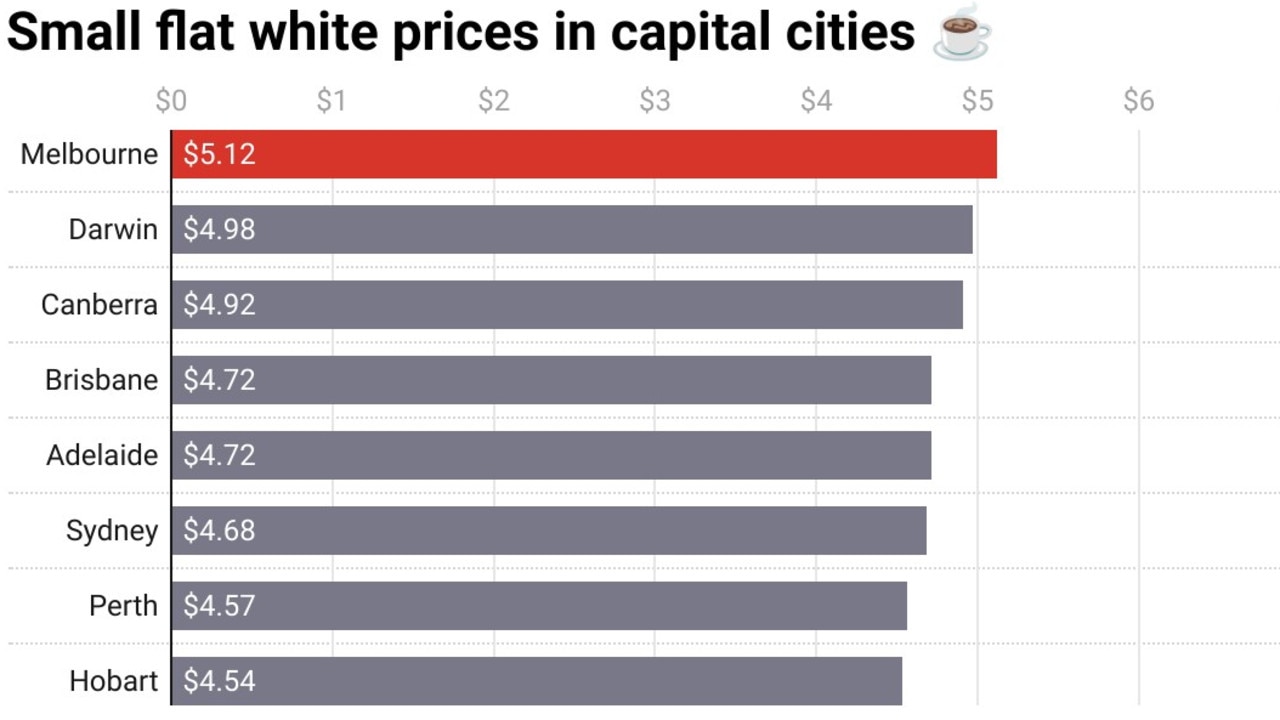St Ali coffee boss says cup of coffee is now too cheap in Australia
An industry leader in Melbourne has called on Australian cafes to “be brave” and boost their coffee prices or risk closing their doors.
An industry leader in Melbourne has caused a brew-haha after declaring Aussies aren’t paying enough for their daily cup of coffee.
St Ali coffee roasters chief executive, Lachlan Ward, told the Herald Sun on Tuesday cafes need to “be brave and adjust up” or risk closing their doors.
“The way we are pricing coffee in Australia is not sustainable,” Mr Ward said.
“Unless Australian cafes start adjusting prices up and charging a fair price for what we are making, the independent cafe won’t exist in the future.”
A survey conducted by The Conversation last month of specialty venues across Australia’s capital cities found the average price of a small takeaway flat white is $4.78.
But, Mr Ward said, Aussies should be paying a minimum $5.50 for the beverage (at St Ali’s South Melbourne outpost, the dine-in cost of a regular flat white is $6.50).
“We have incredible operators and beautiful cafes closing down weekly, we can’t look at cutting prices. Cutting isn’t good for any business,” he said.


Given our national penchant for whinging about coffee prices, Mr Ward’s comments, unsurprisingly, proved divisive among consumers.
One man deemed his remarks “idiotic”, while some said they reflected why they now get their caffeine fix at home.
“LOL! I’m sure it’s delicious but when you grab a coffee from 7/11 or Maccas for change (for the few of us that still use coins) how long do you expect to stay in business? People are cutting costs wherever they can but clearly in your fantasy land you believe they will pay a fortune for your coffee. Good luck with that!” another reader wrote in to the Herald Sun.

A third said: “When having a daily coffee becomes a financial consideration rather than a casual enjoyment (due to cost) then sales will drop off quickly – this line is fast approaching.”
“Ordinary middle class people are being squeezed out of any luxuries by elites, government taxes and social engineering,” another complained.
“Consumers will determine the market price. Charge what you want. People will either buy it or not. But don’t complain when you price yourself out of the market.”
Others, however, said the rising price is par for the course given “costs for cafes to make great coffee have risen exponentially”.
“Cafes are the canary in the coal mine. I don’t think the general population understand the financial squeeze most are under, and they are going broke in record numbers,” one pointed out.
As adjunct senior researcher at the University of South Australia, Emma Felton, wrote for The Conversation, “given the quality of our coffee and its global reputation, it shouldn’t surprise us if we’re soon asked to pay a little bit more for our daily brew”.
“By international standards, Australian coffee prices are low. No one wants to pay more for essentials, least of all right now. But our independent cafes are struggling,” she said.
“By not valuing coffee properly, we risk losing the internationally renowned coffee culture we’ve worked so hard to create, and the phenomenal quality of cup we enjoy.”

One of the key factors keeping coffee prices low in Australia, Dr Felton said, is “consumer expectation”.
“For many people coffee is a fundamental part of everyday life, a marker of liveability. Unlike wine or other alcohol, coffee is not considered a luxury or even a treat, where one might expect to pay a little more, or reduce consumption when times are economically tough. We anchor on familiar prices,” she said.
“Because of this, it really hurts cafe owners to put their prices up. In touch with their customer base almost every day, they’re acutely aware of how much inflation can hurt … But specialty cafes face much higher operating costs, and when they’re next to a commodity-grade competitor, customers are typically unwillingly to pay the difference.”
Melbourne Coffee Academy director Charles Skadiang echoed the sentiment in a March interview with Yahoo Finance, pointing to the cost of beer in Australia increasing with indexation.
Mr Skadiang noted there’s far more skill involved in producing a high-quality coffee than pouring a pint.
“The thought of paying $7 for a cup of coffee is outrageous for a lot of people,” he said.
“But the amount of work that goes into it, you’ve got a skilled barista to train someone up to make a great coffee, it takes a lot of time.”






